BLOG
Find support not just for emotional eating, but all aspects of your well-being.
Why You Dread Being Bored

Our modern society keeps us hustling: from work to parenting to errands to all kinds of activities. We’re taught that there is value in keeping busy, that being productive should be celebrated. We also are constantly bombarded online with content that highlights people having it all together, going on their next vacation, workout out at 5:00 a.m., or getting a promotion. You feel you have to keep doing to keep up!
And being busy can be a coping mechanism too.
There are a number of reasons you might keep adding to your to do list. First, keeping your mind constantly focused on what you have to do next stops you from having any space to think. It becomes an avoidance tactic that keeps you from feeling or thinking about what you don’t want to. Ever notice when the chaos of the day ends—driving home from work or after the kids are in bed—you end up reaching for food? That’s because constantly being busy is an avoidance tactic just like emotional eating. You can rely on food when your day...
Reparenting: Learning to Support the Younger You
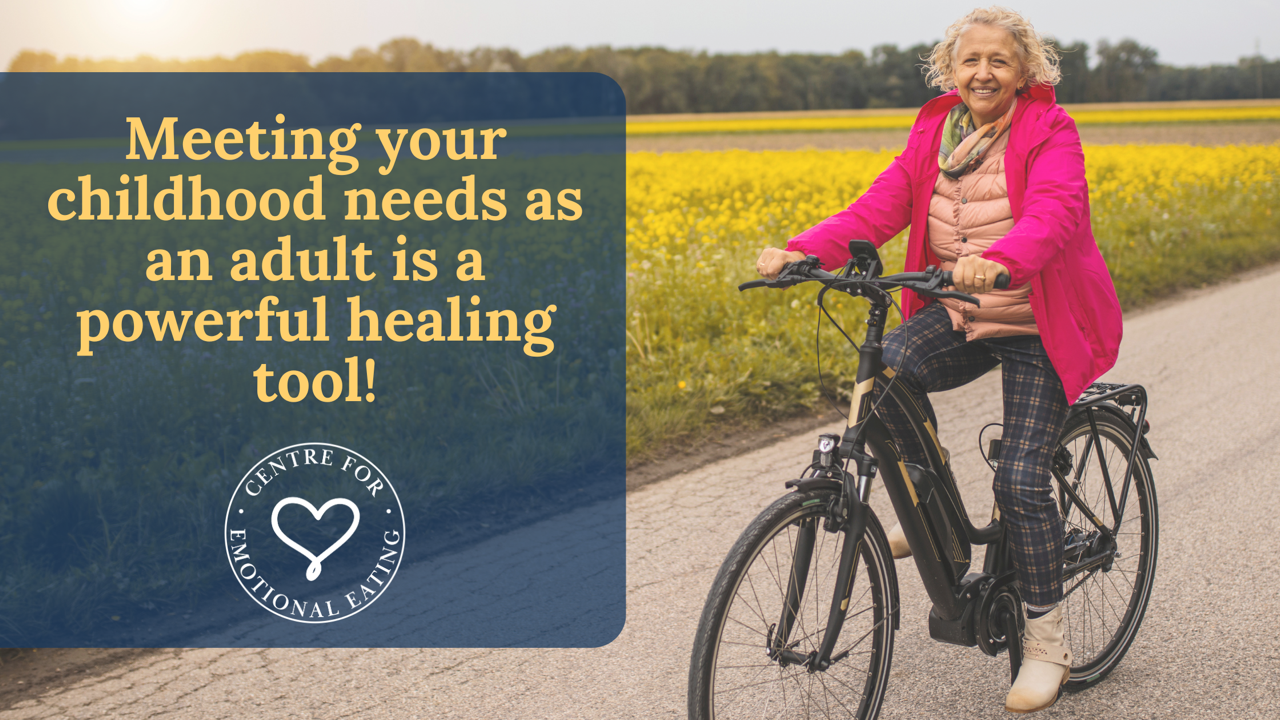
Often here at the Centre for Emotional Eating we talk about how your patterns and habits with food are influenced not by the cravings themselves, but the root cause behind what makes you act.
For many, the root cause can be found in childhood or adolescent experiences. This is because as our brains and bodies grow, we are learning and are influenced by examples displayed around us—to finish what’s on our plate, diet talk, stuffing down emotions, just to name a few. We learn from parents, caregivers, teachers, coaches, siblings, and friendship circles! But not all of these lessons will serve you as you grow into your own adulthood, some might be downright painful or destructive.
It is incredibly common to reach a point in your adult life and know things need to change but not know how. This is where therapy can be a very helpful tool in helping you sort through your thoughts and feelings, gain confidence to make your own decisions, and help you feel more resilient.
And one effective ...
Food Noise Explained: Why It Happens and How to Find Peace with It
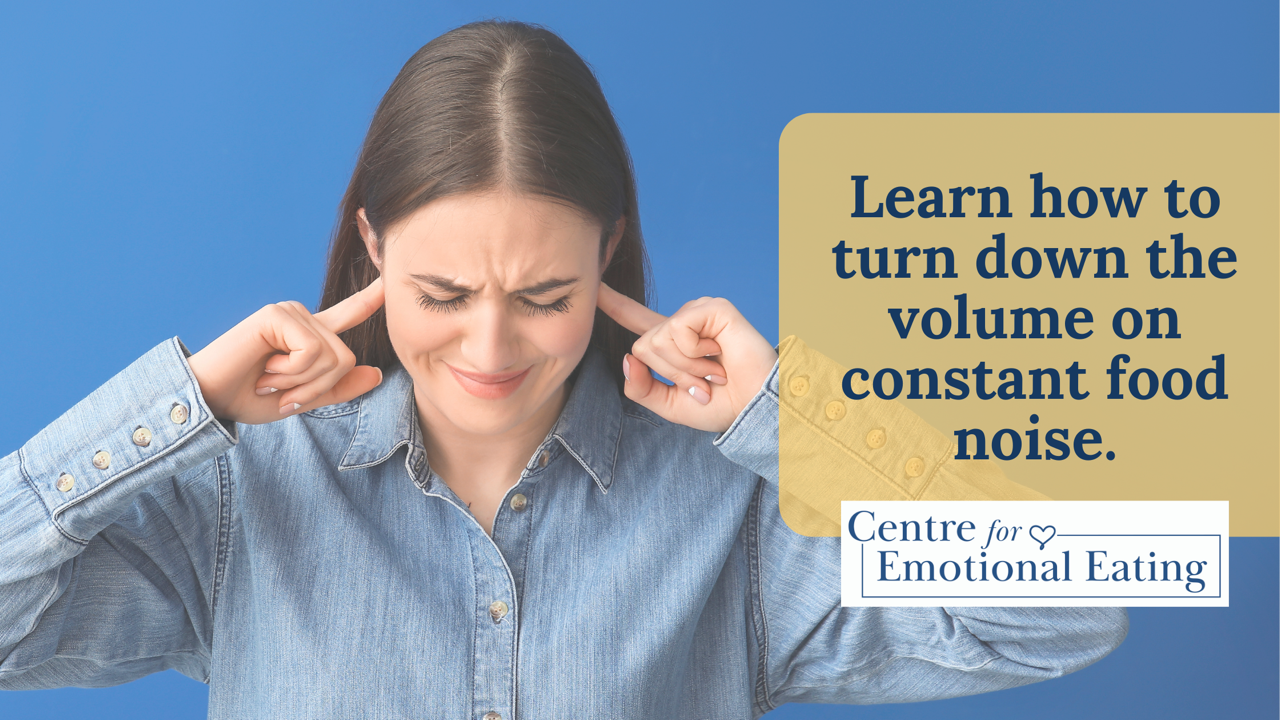
It is common to think about food: what you have to pick up at the grocery store, your weekend dinner out with friends, or even if you want a pastry to go with your coffee.
But when your mind is running a constant dialogue focused on your next meal or snack, how much and when you’ll eat, chances are you’re experiencing food noise. You might have come across this term online, so today we’re breaking down why you can’t stop thinking about food and what to do about it.
What is food noise?
We can define it as a preoccupation with food before, during, and after you eat—so all the time! This can come in the form of questions or criticisms. Do any of these sound familiar?
- “I just ate but I’m still hungry. I shouldn’t eat any more, but I kind of want more potatoes, they were so creamy, probably full of butter…”
- “I have ice cream in the freezer. I shouldn’t eat it. I want it. I’m going to eat it. That was so good, what more can I have? I’ve already had the ice cream, I’ve blown it, I’ll j ...
Retrain Your Brain: Finding Happiness Outside of Food

There are many reasons people emotionally eat: to distract themselves, to feel numb, to have something to control. But one of the common reasons I hear from clients is that food brings them a sense of happiness that they feel doesn’t compare to any other experience currently in their life. This makes emotional eating incredibly difficult to stop relying on when you don’t have others ways of accessing this feel-good emotion. Does any of this sound familiar?
- A snack feels like an only acceptable break from grinding away at work or your to do list. Your brain makes the connection that not working = food.
- You only feel your body relax once the kids are in bed and you can eat alone in the evening. The connection your brain makes here is alone time = food time.
- You only allow yourself to have foods like cake or popcorn at events like parties or at the movie theatre. Here your brain connects special events (happy times) and specific foods.Our brains love to work on auto-pilot because it ...
Summertime Depression: Seasonal Affective Disorder is a Year-Round Experience

You might have heard of, or experienced, seasonal affective disorder (also known as SAD) during the colder months of the year. Common symptoms of SAD are irritability, changes to your sleep patterns or the way you eat, and worsening of anxiety or depression. If you’re reading that and thinking “that sounds familiar” but it is the Summer and you dismiss your symptoms, we’re here to tell you that SAD can also happen during the sunnier, warmer months.
Our brains and bodies like routine: it makes things feel in control and predictable. So, any time there are changes introduced—like hotter weather, later sunsets, or change to homelife—it is understandable that our system would react in a certain way, no matter if it is Winter or Summer. There are a number of reasons why Summer SAD can happen, but here are two big ones:
Day-to-Day Disruptions
You might be planning vacations (hello travel stress!) which can add to your mental load or are having to navigate having kids home on school break....
How to Really Give Yourself Unconditional Permission to Eat
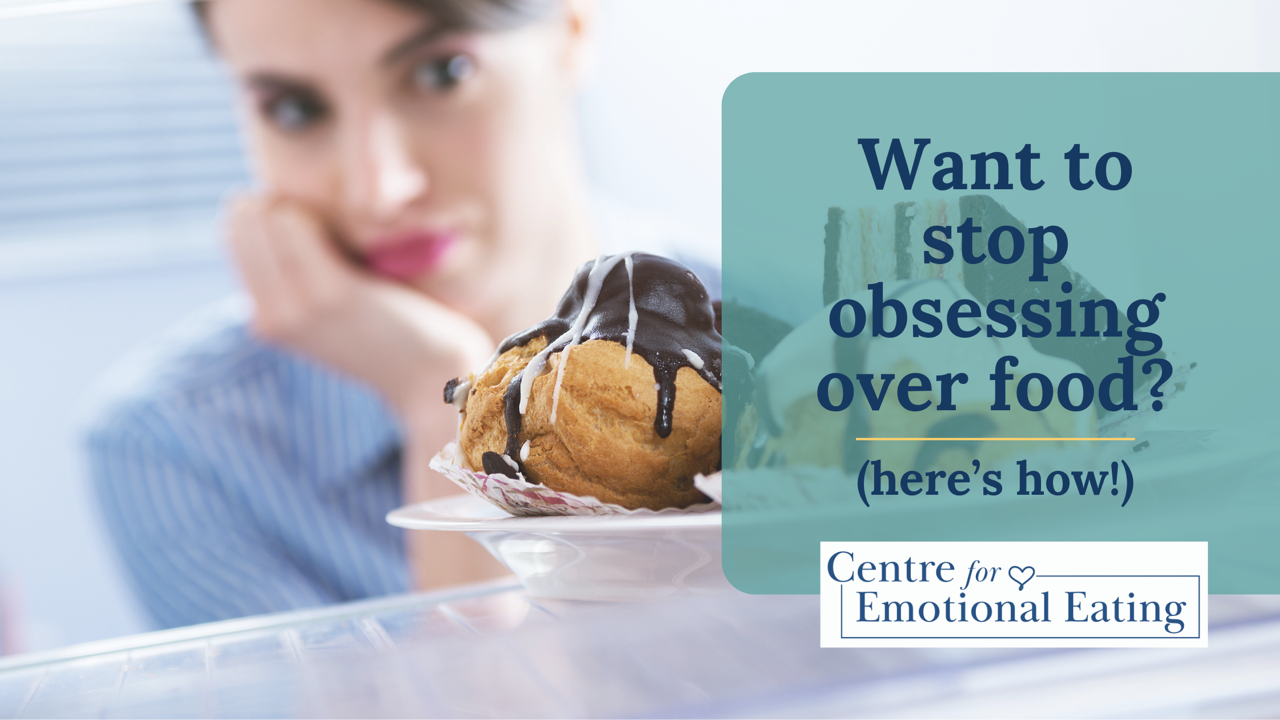
One of the most powerful ways to begin healing your relationship with food is by giving yourself unconditional permission to eat. While diet rules might give you a sense of control, sooner or later you will be feeling out of control, guilty, and shameful when you ‘break’ those rules.
You might have heard of this eating approach before, but what does it really mean? And how can you use it in your day-to-day life? Below we’re breaking down this great step you can take to start loosening your rules around food and start bingeing less.
What Is Unconditional Permission to Eat?
First, it means letting go of the food rules you’ve set for yourself like not eating lunch until noon, labeling fast food as “bad”, or limiting carbs. Then, you give yourself permission to eat what you’re craving, when you want it, and in whatever amount feels right to you. The more you start to lean into this way of eating, the more you’ll notice what foods satisfy you, if you’re hungrier after a workout, and more...
Emotional Eating Toolkit: Creating a Comfort Box
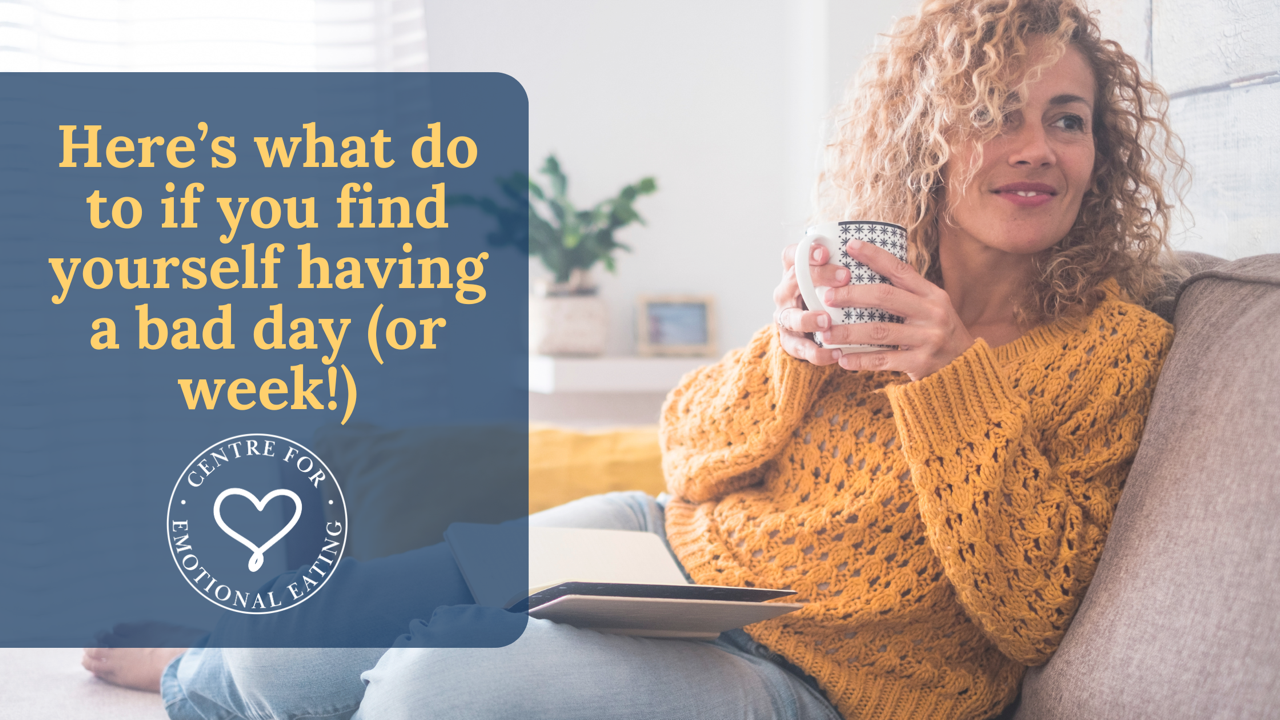
We all have bad days (heck, even weeks!) where we feel drained, angry, or even upset most of the time. If this comes up for you, it is time to create a comfort box. This can be a great resource to build yourself back up when you’re feeling low.
Here’s how to do it:
The next time you’re feeling in a good place, put together a physical box or digital list that has things that bring you comfort when your mood is low. You can include:
- A playlist or movie that lifts you up (or helps you cry). This could be either to pump up your energy or create an emotional release. It can sometimes be difficult to allow ourselves to cry when we’ve been holding it together for so long; we often judge ourselves less when we’re crying over a fictional character.
- A candle you’ve always wanted to burn or a face mask you’re wanted to try. Often, we keep certain things for a “special occasion”, but why wait! Being able to indulge in little luxuries might just give you the small boost you’re looking for (in ...
Let’s Talk About It: The Rising Popularity of GLP-1 Drugs
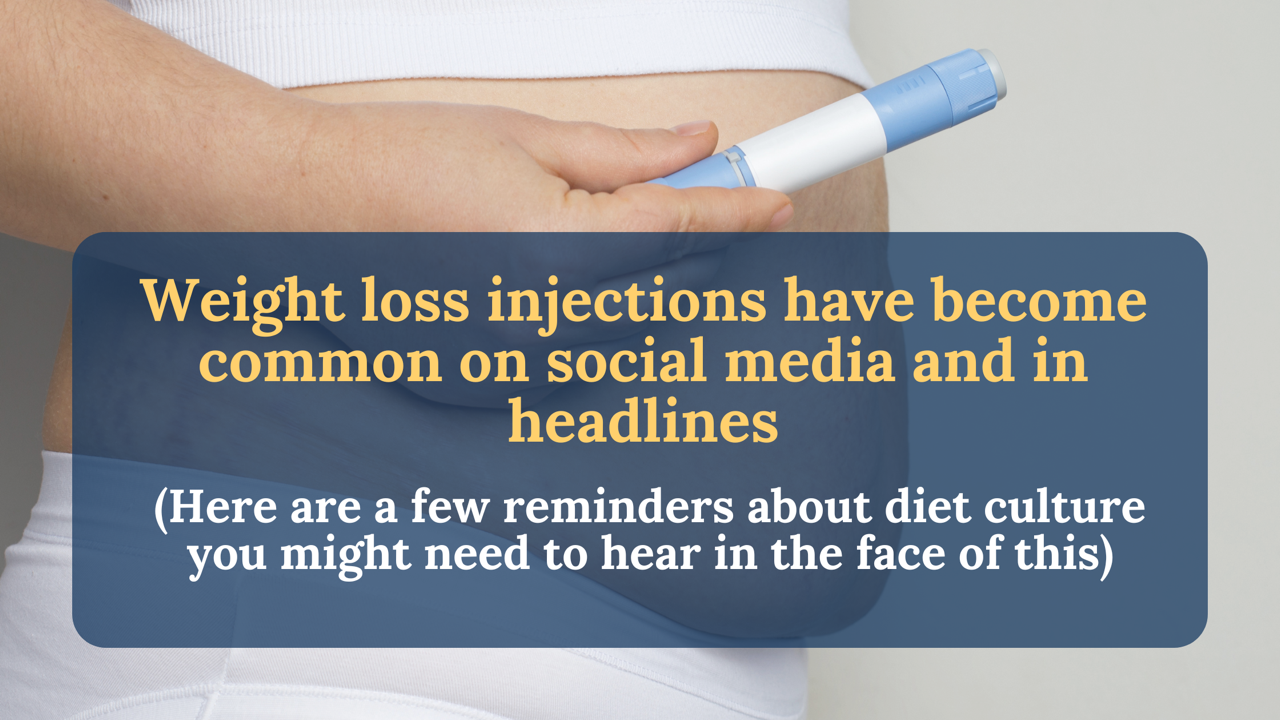
It seems impossible to ignore the presence of GLP-1 medications, you might have heard them being called Ozempic or Wegovy. Diet culture seems to have evolved from a focus on willpower to injections that can give you the “body of your dreams.”
It can be especially difficult to see celebrities who were previously promoting body positivity and self-love admit to taking weight loss injections. It can feel like a betrayal. And some, like influencers on social media, aren’t being transparent about their use of the drug but continue to say only diet and exercise are responsible for their results.
Plus, all these headlines, photos, and videos can make you hyper-aware of your own body as we’re encouraged to compare ourselves to others. You might find your emotional eating—reminder, that can include restricting too—ramps up the more you’re faced with this kind of content. It can be a constant reminder that weight loss is celebrated and only one body type is “acceptable.”
Here are some loving ...
Client Insight: “It felt scary when therapy started to change how I saw myself and others.”
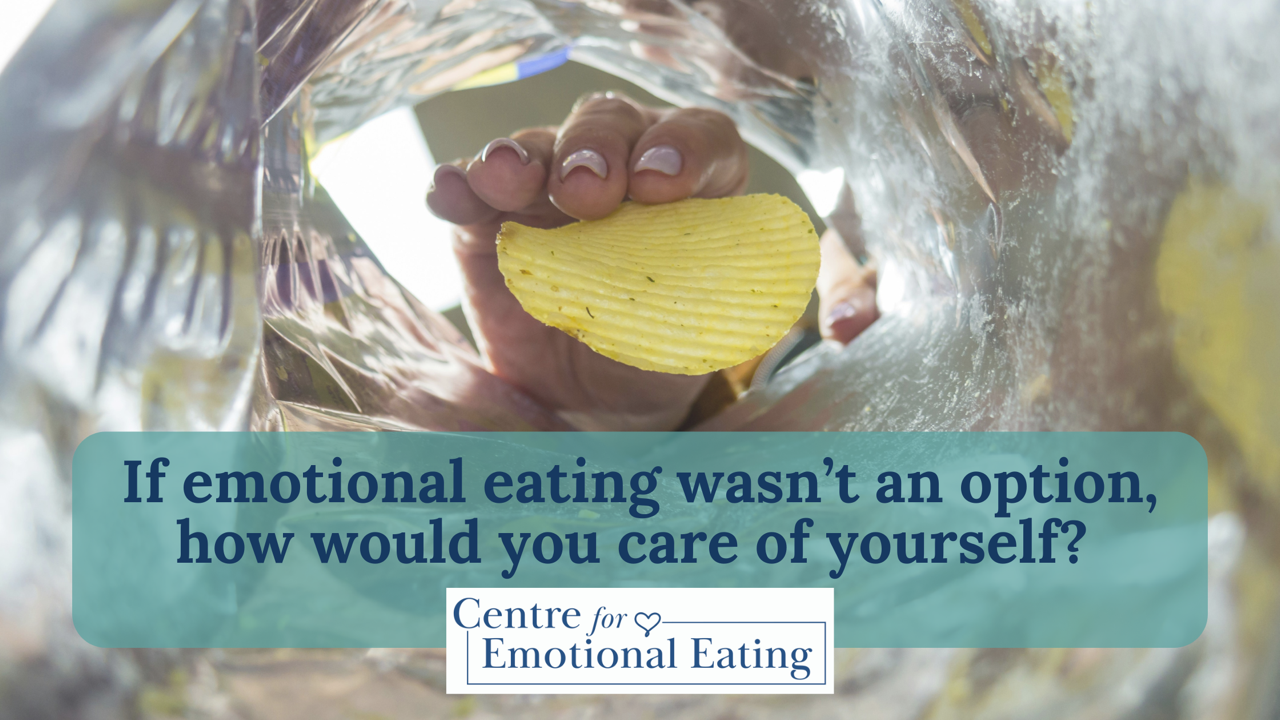
Doing the work in therapy often comes with challenging the stories you’ve always told yourself. Over time we solidify ideas about ourselves, our relationships, and the world around us. This can sound like:
“I’m broken.”
“I’ll always be an emotional eater.”
“My mom did the best she could.”
But as you face these narratives about yourself, you’ll start to find the wiggle room, the space to start re-thinking how you see yourself and what that means for your identity. This can feel destabilizing! It is scary if you always thought of yourself or those in your life one way, only to unpack that things are different that they first appeared. It can feel easier to stick with the familiar way you’ve always understood your family and friends, and even yourself.
While this experience is uncomfortable, it is also a great sign that therapy is getting to the root of your experiences. Let’s flip the script: changing how you see the world is like taking off a pair of tinted sunglasses.
Let’s try t...
How to Build Trust in Yourself
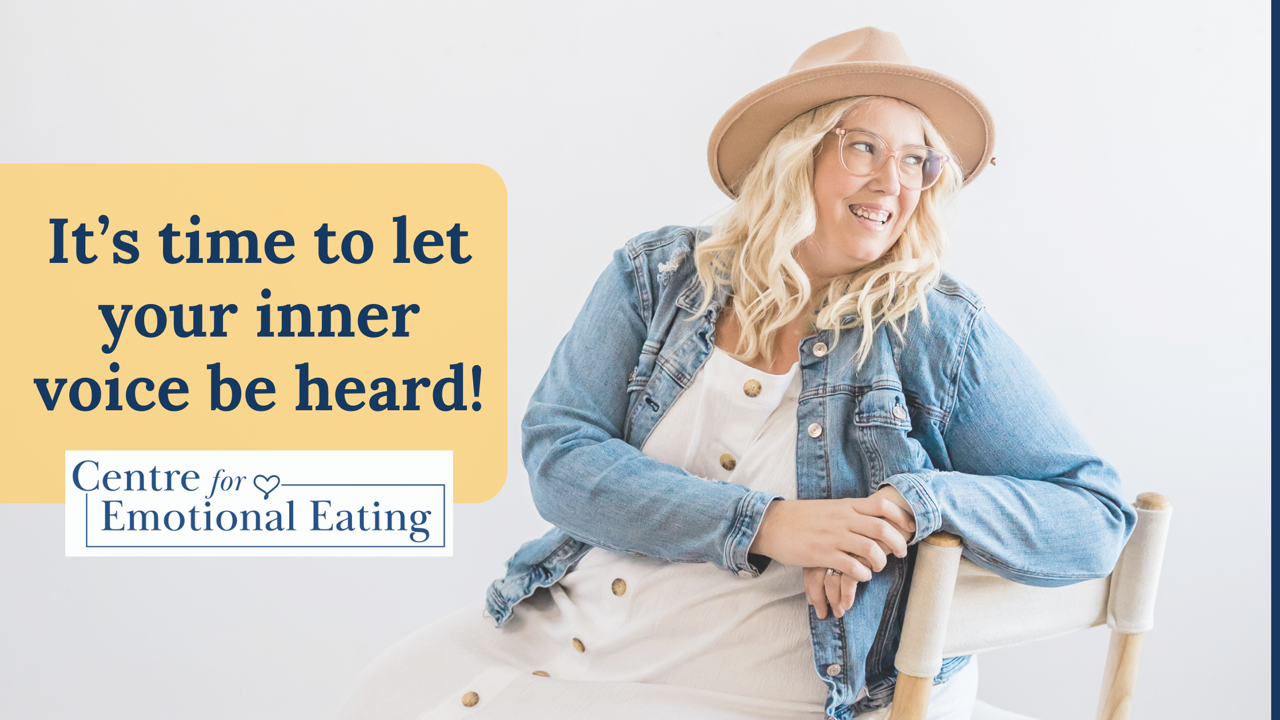
If you’re an emotional eater, you might have spent a lot of your life trying to stick to a diet or workout routine created by someone else only to keep feeling like you fail. This can grind down your sense of self-trust: you keep trying to live by the rules of others, not trusting your inner voice, and you keep feeling like you’re breaking promises to yourself by not following through.
Talk about being stuck in a loop!
It is time to start rebuilding your self-trust, an inner knowing that you are capable and have preferences. But how can you do that if you’ve been ignoring your inner voice for so long? Try thinking about how you support the people in your life who you love and then apply it to yourself. You might find that it feels easier to trust and show up for others than it is to show yourself the same level of support and compassion.
Here are a few specifics to think about:
Keep a promise to yourself. Start off with little things like setting the intention to brush your teeth b...


